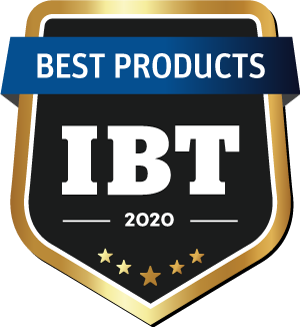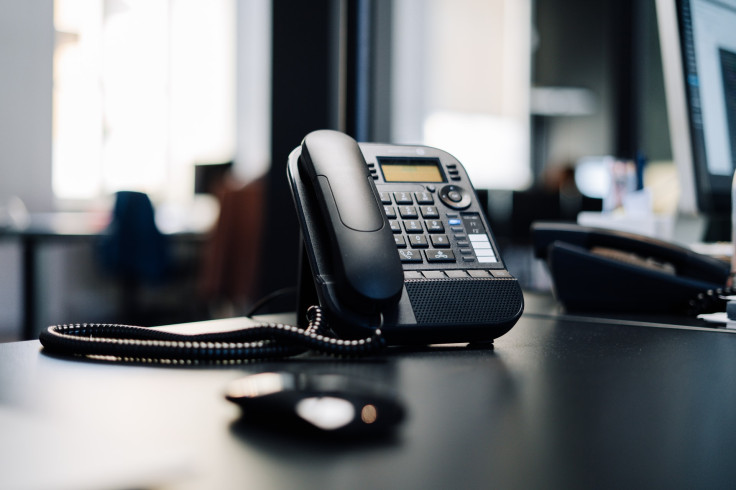Phone Systems and Services For Successful Small Businesses


Running a small business in today's cut-throat commercialized world is not for the faint of heart. Every company needs to communicate with its customers, and a phone system is still a necessary requirement.
Choosing a phone system is not as straightforward as perhaps it once was. There are now alternatives to traditional landlines, and for small businesses in particular, these new choices can make financial sense.
What Was Considered and Why
We approached choosing a phone system by first considering different types of successful small businesses and examining their basic needs.
SOHO (small office/home office) businesses with a single proprietor will have different needs than a small company with ten employees, etc. Features available for the system we picked were also an important part of determining the contenders.

We considered the different requirements differently sized businesses would need, and we paid particular attention to set-up costs and simplicity of set-up. Even successful small businesses cannot always afford a high upfront cost, and many don't have an IT department.
Small businesses are often operating on a small profit margin, and ongoing monthly costs can sometimes be a critical factor. It is no good having a shiny high-tech phone system that will talk to outer space if it ends up breaking the bank, so all options we considered had to be affordable.
Lastly, we evaluated reliability and scalability. Most small business owners want to become big business owners, and scaling-up a phone system could prove to be very expensive. Reliability was, of course, a requirement.
The Products and Services That Made the Shortlist
While the options available differed so much, depending on the features your business needs, all these "finalists" are affordable.
Panasonic KXTG9582B
For a SOHO business, this system is potentially a good choice. The equipment is not expensive by modern standards but is very capable. It comes with two handsets, a base/answering machine, and is DECT 6.0 based.
The system basics include three-way conferencing, call blocking of up to 250 spammers, text and caller ID, 20-speed dials, and back-up battery power should a power outage occur.
As a major bonus, you can transfer up to 3,000 names and numbers via Bluetooth from your smartphones to the built-in directory.
The system also has a LINK2CELL capability, which means that up to four smartphones can be linked via Bluetooth, which will allow you to make smartphone calls using the cordless handsets from anywhere within the house or office.
Grasshopper
Wherever employees might be, the cloud-based Grasshopper system can reach them as if they were in the office. You can set up business lines to ring directly to an employee's home or cell phone. In fact, your business can have a direct extension for all your employees.
Lots of options are available, including on-hold music, call screening, and ten participant conferencing. A dedicated app that allows employees to receive business texts on their personal phones, this service rated extremely highly among small business owners.
But this virtual system means that it's not possible to change to self-hosting a PBX-type system at the office and still stay with Grasshopper. The company does offer three pricing tiers, which are very affordable, and all come with unlimited minutes.
Customer service by Grasshopper is rated highly by multiple users.
8x8
8x8 is another cloud-hosted and highly rated company. As with the other VoIP services, high-speed Internet is basically the only requirement.
It's considered one of the most reliable services, with an impressive uptime of 99.9%. The system will let employees have access to business lines wherever they are in the world in order to check their voicemail, make video and traditional calls, and integrate with Salesforce if you need it.
There's a three-tier pricing system, and 8x8's rates are some of the most cost-effective in the business. The entire system can be set up and managed through the 8x8 web portal.
Ooma
Ooma is specifically designed for small businesses and offers cloud-based services combined with on-premises hardware. The beauty of this approach is the simplicity of set-up as little technical knowledge is required. The hardware is very inexpensive, even for a microbusiness.
Although not as fully featured as some other phone systems, capabilities like a virtual receptionist that can appropriately redirect calls is an attractive proposition to many as not only is it efficient for the company; it makes the business look professional to a caller.

Ooma has earned a reputation for its quality customer service and provides a high level of support for any problems you might run across.
This system will be especially attractive to many micro or small business owners. It works with analog and IP phones, requiring very little equipment to get up and running. And pricing is simple with just two inexpensive service plans.
Ring Central
Ring Central is a cloud-based VoIP system that offers services to all sizes and types of business. The set-up is simple and won't be too technical for the average small business.
They have a specialist on-call to help guide you through installation so that everything works correctly from the start. Ring Central has an impressive security system for its users with an uptime of 99.999%.
What sets Ring Central apart from the rest feature-wise is its great selection of options. The typical virtual receptionist and on-hold music are there, of course, but in addition, there's call screening, call forwarding, call recording, and many other management tools. You can conference with up to 1,000 callers, and video conferencing is available too.
As far as scalability is concerned, Ring Central was considered the best option. While it can accommodate small businesses, for owners that are on the road to success, Ring Central can upscale a system as necessary and can easily handle both medium-sized and large businesses.
Telephone Systems

Let's talk about the choices available for a successful small business. The Landline based System is a traditional copper-line based phone system has been in existence since the early 1900s, but it's still an option in the 21st century.
Voice over Internet Protocol (VoIP) Systems allows a company to work with the same Internet connection it uses to go online. There are two types of VoIP system:
Cloud Hosted VoIP: Cloud hosted VoIP means that the phone company owns and maintains the PBX equipment.
On-Premises VoIP: This system means that the business would have to purchase or lease the PBX equipment and be responsible for maintenance and upgrades.
The Virtual Phone System is basically call-forwarding, where a virtual business phone number is set up, which then calls an employee's cell phone directly. As a small business owner, understanding your phone system options will set you up for success.





















